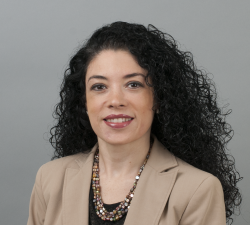Are you feeling stressed about money this fall? You're not alone. A recent survey conducted by the National Endowment for Financial Education® (NEFE®) reported that nearly nine out of ten, or 88 percent, of Americans say the COVID-19 pandemic has caused them financial stress.
Top money stressors include:
- Not having enough in emergency savings or retirement accounts
- Lack of job security
- Inability to pay bills, including rent/mortgage, utilities, and credit card debt
- Having to put off major financial decisions
Employers know, too, that a financially stressed employee is likely to show signs, such as:
- Asking about a 401(k) loan.
- Requesting a cash advance or raise.
- Volunteering for extra work.
If you find yourself among the majority of Americans who feels financial stress, here are some tips to alleviate it:
- Keep tabs on your money. As difficult as it may seem, this brave step is the first in getting your stress under control. Create a spreadsheet to show how much money is coming in and where it's being spent.
- Develop a spending plan. This is better known as a budget. A budget is not a plan for deprivation. It is a plan to achieve your goals. If you aren’t sure how to create a budget, take advantage of some of the worksheets and tools we have available to create a budget.
- Automate your finances. Even those of us who are not dealing with a financial crisis are feeling stressed out. Make life easier by automating as much as you can. Set up your payroll check to be direct deposited in to your account. Start paying bills online; you can even set up certain monthly bills to be paid automatically, such as those for insurance and cell phone. You can even have money set aside automatically for emergency savings or retirement. Bonus: When you set up an automatic deposit into your savings or retirement accounts, the money is out of your reach.
The next step in getting your financial house in order is to educate yourself on the many ways that you can make your money work for you. Your employer, local library or credit union offers free financial education programs.
For example, Hanscom FCU has a variety of free financial education webinars taking place this fall. These one-hour programs are online; all you need is a computer and Internet access to attend.
We also offer free financial education in the workplace. Our Lunch and Learn programs cover a variety of topics, such as Retirement Income Planning, Understanding Your Credit Score, Investing, Money Management, and Identity Theft Protection. Our team of experts can work with your employees virtually.
Others are reading:













Comment